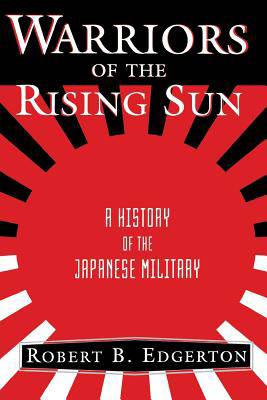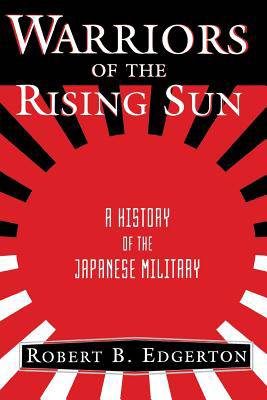
- Afhalen na 1 uur in een winkel met voorraad
- Gratis thuislevering in België vanaf € 30
- Ruim aanbod met 7 miljoen producten
- Afhalen na 1 uur in een winkel met voorraad
- Gratis thuislevering in België vanaf € 30
- Ruim aanbod met 7 miljoen producten
Zoeken
€ 36,95
+ 73 punten
Uitvoering
Omschrijving
During World War II, many of Japan's soldiers committed such crimes against humanity that the world recoiled in horror. During the notorious six-week-long "rape of Nanking" in 1937, Japanese forces murdered at least 200,000 men, women, and children. Throughout the Pacific War, Allied prisoners were often starved, tortured, beheaded, even cannibalized. Although Japan's military men fought bravely against outnumbering forces again and again, their astonishing brutality made them a loathsome, unforgivable enemy.While this chapter of Japanese history is well known, few realize that earlier in this century the Japanese were celebrated throughout the West for their chivalry in warfare. During the Boxer Rebellion in China and the savage Russo-Japanese War of 1904-5, the Western Press lauded the Japanese for their kindness to the wounded and imprisoned enemy.Warriors of the Rising Sun chronicles the Japanese military's transformation from honorable "knights of Bushido" into men who massacred thousands during the Pacific War. Crucial in bringing about this change was Western rejection of Japan as an aspiring colonial power, as well as the West's racist, anti-Japanese immigration policies. Japan's leaders chose military brutality as a necessary means to achieve a rightful place in the world. Today, Japan has the second largest military budget in the world. What lessons have her leaders learned from the past wars?
Specificaties
Betrokkenen
- Auteur(s):
- Uitgeverij:
Inhoud
- Aantal bladzijden:
- 384
- Taal:
- Engels
Eigenschappen
- Productcode (EAN):
- 9780813336008
- Verschijningsdatum:
- 1/02/1999
- Uitvoering:
- Paperback
- Formaat:
- Trade paperback (VS)
- Afmetingen:
- 153 mm x 230 mm
- Gewicht:
- 594 g

Alleen bij Standaard Boekhandel
+ 73 punten op je klantenkaart van Standaard Boekhandel
Beoordelingen
We publiceren alleen reviews die voldoen aan de voorwaarden voor reviews. Bekijk onze voorwaarden voor reviews.








